From fierce loyalty to razor-sharp instincts. Did you know dogs had some special abilities that made them the best animal when it comes to protecting and companionship?
Guard dog abilities serve as a hindrance to intruders; their keen senses enable them to detect potential threats. Guard dogs are among the most loyal, courageous, and vigilant animals, revered for their unwavering commitment to protecting people and property.
This blog dissects the expert’s insight that you didn’t know guard dogs possessed. Relax and keep reading to understand the unique characteristics that make a dog a protector.
What is a Guard Dog?
To start, let’s clarify what we mean by a guard dog. While many dogs exhibit protective behaviors, a true guard dog is specifically bred or trained to protect people, property, or territory.
Unlike a watchdog, who mainly serves as an alarm by barking at unfamiliar activity, a guard dog is ready to confront an intruder if necessary.
But guard dogs are not defined solely by size or strength. Instead, it’s a combination of natural traits, individual personality, and specialized training that make a dog a successful protector. What are these essential abilities that make them such effective protectors? Let’s explore each of them.
Top 10 Guard Dog Abilities
Understanding a guard dog’s abilities reveals why they are some of the most effective protectors available. Here are ten critical abilities that make a dog stand out as a guardian:
- Alertness
A high level of alertness is essential for any guard dog. Dogs have a heightened sense of smell, sight, and hearing, which allows them to notice even the slightest unusual sounds, scents, or movements.
This natural vigilance means guard dogs are quick to pick up on potential threats, making them the first line of defense for their home or family.
In fact, their keen senses often detect disturbances well before humans can, giving them the advantage of early response.
- Loyalty
Loyalty is one of the defining qualities of a guard dog. These dogs form strong bonds with their family or handler, creating a powerful motivation to protect them at all costs.
Loyalty drives a dog’s protective behavior, making it more likely to stand between its family and potential threats. A loyal guard dog will do anything to keep its loved ones safe, and this bond can be nurtured through training, socialization, and positive interactions.
- Territorial Instinct
Guard dogs have a natural territorial instinct, meaning they view their homes, yards, or designated areas as their domain to defend. When a dog considers a space to be its territory, it’s more inclined to investigate and respond to unfamiliar people or animals.
This territorial drive is especially strong in breeds like Rottweilers and German Shepherds, which are naturally protective of their surroundings and take guarding seriously.
- Courage
Courage is one of the most admirable qualities in guard dogs. Dogs with courage remain unfazed even when faced with daunting threats, giving them the confidence to confront dangers head-on.
This fearlessness helps them protect their family, home, or handler even in intimidating situations. A courageous guard dog can be a strong deterrent, as it projects confidence that can discourage would-be intruders.
- Strength and Agility
Physical prowess is vital for guard dogs, as they may need to engage in physical confrontations to protect their territory or loved ones. A strong, muscular build enables them to hold off intruders, while agility allows them to maneuver quickly.
Breeds like the Belgian Malinois and Bullmastiff exemplify these traits, balancing strength and speed in ways that make them highly effective protectors. Agility also enables guard dogs to respond swiftly, potentially intercepting a threat before it escalates.
- Obedience
This ability is essential for any guard dog, as it allows the handler to control the dog’s actions and ensure it only responds when necessary. A well-trained guard dog will follow commands without hesitation, reducing the risk of unwanted or overly aggressive behavior.
Obedience training includes teaching commands like “stay,” “down,” and “leave it,” which help guard dogs understand when it’s appropriate to engage and when to back down. Obedience is particularly important in high-stress situations, allowing the handler to guide the dog’s response.
- Situational Assessment
Guard dogs are trained to assess situations, which means they can recognize when a scenario is genuinely threatening versus routine or harmless. A dog with this ability can avoid reacting to minor disturbances, such as a passing car or a friendly neighbor.
Instead, it saves its response for situations that truly warrant action. This judgment skill makes guard dogs more reliable and reduces the chance of unnecessary confrontation.
- Protective Barking
A deep, authoritative bark is a powerful tool in a guard dog’s arsenal. Barking alone often serves as an effective deterrent to potential intruders. Guard dogs use their bark to send a clear warning, signaling that they are present and ready to defend.
Protective barking is often enough to make someone think twice before trespassing, as it indicates the dog’s readiness to act if the boundary is crossed.
- Fearlessness
A fearless guard dog is essential, as these dogs can stay calm even when they perceive a genuine threat. Fearless dogs don’t react impulsively out of anxiety; instead, they remain steady and focused, allowing them to make clear-headed decisions in the face of danger.
This composure is especially important in high-stakes situations where sudden movements or hesitance could escalate the threat.
- Tracking Ability
Some guard dogs have tracking abilities that allow them to follow a scent trail, which can be invaluable in security or protection instances. A tracking dog might be used to follow an intruder’s scent or locate a potential danger nearby.
Tracking ability is highly valued in personal protection dogs, who need to stay aware of any surrounding threats. Breeds like the Bloodhound are known for their tracking skills, though many other guard dog breeds can also be trained for scent detection.
These ten abilities, combined with training and socialization, contribute to the impressive skill set that makes guard dogs effective protectors. However, these skills don’t just appear on their own they need to be nurtured and developed.
The Role of Instincts and Temperament
Instincts and temperament are foundational for a guard dog’s role. Guard dogs rely on protective instincts, often inherited from their wild ancestors, to guard their territory and loved ones.
While many breeds display some level of protective behavior, certain breeds such as the German Shepherd, Rottweiler, and Doberman Pinscher are known for their strong guarding instincts and loyalty.
Temperament also plays a crucial role. Confident, calm dogs tend to make the best protectors because they remain balanced under pressure and know when to respond versus when to hold back.
This ensures that they don’t react too aggressively to harmless situations or shy away when they need to be assertive.
Trainability: Shaping the Guard Dog’s Abilities
This is critical in harnessing a guard dog’s natural instincts into an effective response. Breeds with high trainability, like the German Shepherd and Belgian Malinois, are often preferred because they quickly pick up commands and understand complex instructions.
Training helps a guard dog learn to distinguish between normal and threatening situations, a vital skill for safe and reliable guarding behavior. With proper training, a guard dog knows how to assess a situation and respond appropriately without overreacting.
Socialization: Developing a Well-Balanced Guard Dog
Another crucial aspect of developing a guard dog’s behavior. By exposing dogs to different environments, people and animals, socialization helps them learn to interact calmly and confidently.
This makes them more balanced and less prone to overreacting to minor disturbances. Without socialization, even a well-trained guard dog might perceive everyday interactions as threats, leading to unnecessary confrontations.
Physical Health and Conditioning
A guard dog’s physical health is just as important as its training. These dogs need to be in peak condition to respond effectively to potential threats.
Breeds like the Cane Corso and Bullmastiff, known for their muscular builds, excel as guard dogs because their strength complements their protective instincts.
Routine exercise, a balanced diet, and regular vet check-ups keep a guard dog strong and capable of performing its duties without physical limitations.
Guard Dogs vs. Personal Protection Dogs
Guard dogs and personal protection dogs share many characteristics, but their roles differ slightly. While guard dogs are trained to protect a space or territory, personal protection dogs are trained to protect a specific individual.
Personal protection dogs often undergo more specialized training, learning how to respond to personal threats or accompany their handler in high-risk situations.
Popular Breeds for Guarding
Some breeds are especially suited to guarding due to their physical and behavioral traits. Here are a few popular choices:
- German Shepherd: Known for loyalty, intelligence, and trainability.
- Rottweiler: Calm, confident, and muscular, with strong protective instincts.
- Doberman Pinscher: Fast, strong, and protective of their families.
- Belgian Malinois: High-energy and focused, often chosen for military roles.
- Bullmastiff: A powerful and protective breed with natural guarding instincts.
Responsibilities of Owning a Guard Dog
Owning a guard dog is a significant responsibility. These dogs need mental stimulation, regular training, and proper socialization. Guard dogs require strong, experienced owners who can provide consistent guidance and care.
Conclusion
Guess what, were you aware of these unique guard dog abilities? Surprisingly, few people are aware of these abilities. A great guard dog combines natural instincts, a balanced temperament, specialized training, loyalty, and physical health to excel as a protector.
Guard dogs possess a unique set of abilities that make them effective guardians, from alertness and courage to tracking and obedience.
Knowing these traits helps you appreciate the dedication and loyalty these remarkable animals bring to their owners. Check this link for more on guard dogs.

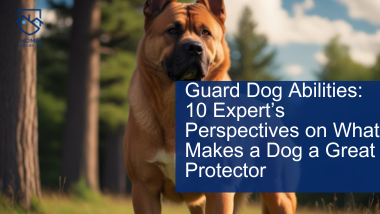
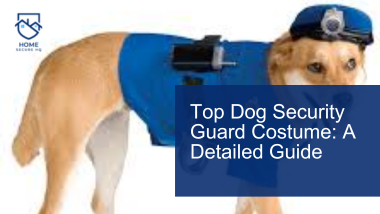
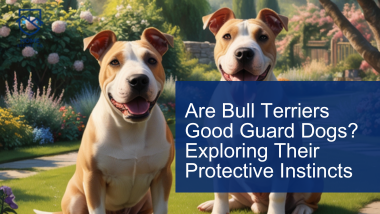
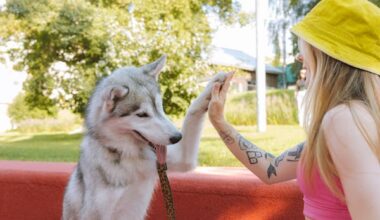

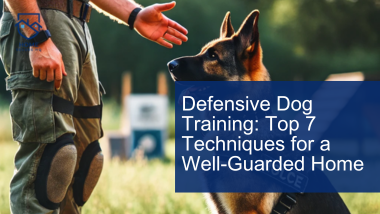
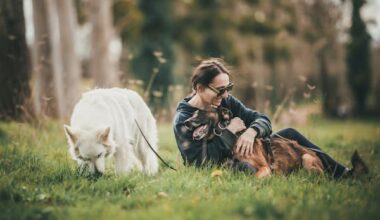
2 comments
Pretty! This was a really wonderful post. Thank you for your provided information.
Thank you
Comments are closed.